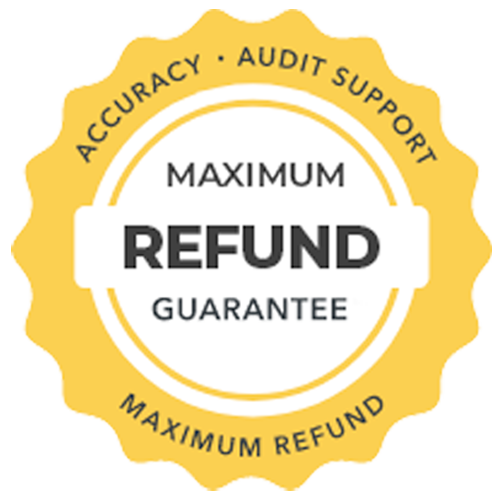Your results...
Congratulations! It looks like you qualify!
According to your stated income and assuming you can claim maximum days off due to Covid illness and caring for a dependent, it appears you could qualify for a total tax refund in the amount of:
Note: This is an estimated amount only. Your actual refund will be calculated according to your confirmed documentation.
- This is NOT a loan and you don’t have to pay it back
- Cash refunds go directly into your bank account
- Act Fast - IRS claim deadline ends soon
Please note that this federal tax refund estimate is not guaranteed and is for informational purposes only. There are many factors that go into calculating any federal refund from the IRS such as: 1. If you owe any back taxes; 2. If you’ve already claimed a full or partial tax credit for this program; 3. A full review of your tax return for accuracy; 4. The estimate is for informational use only and is reliant on the accuracy of the information submitted.

Your next steps:
How do I claim my refund?
3 simple steps to move forward and claim your refund:
- Step 1: Sign our Engagement letter to hire us to file your claim on your behalf.
- Step 2: Choose the best methood to pay your retainer fee of $350.
- Step 2: We file your Refund Claim for you (Error free – Maximum Refund Guaranteed)
- Step 3: You receive your refund directly in your bank account
Awesome. We can’t wait to speak to you. Give us a call at (480) 790-9786 right now and one of our tax refund experts will happily answer all your questions or concerns.
Ready to move forward and claim your refund? Let’s get you locked into our queue for faster processing. Click Here to take the next step and review and sign our engagement letter to retain our services. This will allow us to begin working on your claim on your behalf.
